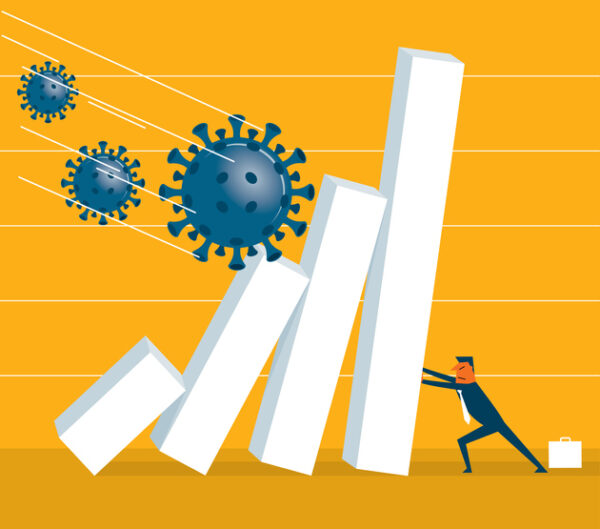
A year ago, a report by Silicon Valley Bank looking at trends in venture capital financing of biopharma companies found that while oncology’s multi-year dominance in fundraising began to dip, the biggest losers of all were companies in the anti-infectives space. There was only one Series A round, worth $3 million, compared with 10 worth $104 million in 2018 and 17 worth $309 million in 2017.
But at least with Covid-19, drugmakers appear to have made a volte face when it comes to their interest in infectious diseases.
“Everybody’s an infectious disease company now,” said Bob Nelsen, co-founder of ARCH Venture Partners, in a phone interview. “Pharmas are falling all over themselves to get into infectious diseases.”
The amount of clinical activity in Covid-19 illustrates how important it has become to many companies. A search on ClinicalTrials.gov for studies in Covid-19 sponsored by industry came up with 443 hits, out of the total 2,713 studies currently listed. And that doesn’t include studies that may be listed in other global clinical trial registries.
And the recent flood of Covid-19 news from drugmakers likewise illustrates how they are falling over themselves.
Some of the excitement that news has generated has been premature. For example, in May, Moderna announced that eight participants in the Phase I study of its vaccine, mRNA-1273, had achieved neutralizing antibodies at levels comparable to those of recovered Covid-19 patients, sending the company’s stock upward, though it was only last week that Moderna actually published data. And on Monday, British biotech company Synairgen’s stock rose more than 400% after it announced what some called a “breakthrough” with an inhaled interferon beta-1a drug, but its announcement left open several questions.

What Are Healthcare Organizations Getting Wrong about Email Security?
A new report by Paubox calls for healthcare IT leaders to dispose of outdated assumptions about email security and address the challenges of evolving cybersecurity threats.
Other companies have rushed existing drugs into development for Covid-19, especially anti-inflammatory drugs or even cancer drugs with anti-inflammatory properties, as well as antivirals, most notably Gilead Sciences’ remdesivir, which has an emergency use authorization for Covid-19, but was originally developed for Ebola.
Despite the apparent Covid-19 gold rush, Nelsen said it has not affected ARCH’s fundraising as much as one might think.
“We didn’t really slow down when it was really bad because all the fundamentals of what we do – investing in early-stage innovative biotech – were still intact,” he said. “The pace of innovation and the revolution in medicine is still happening, and even our companies in biotech, during the shutdown, were still operating.”
On the other hand, he said Covid-19 was a “very big bomb in a very broken system,” and it has spurred increased interest in telehealth and at-home diagnostics while helping to drive “disintermediation” in healthcare. Some of the companies in ARCH’s portfolio have redeployed assets, and the firm has been pursuing some Covid-19-related investments in diagnostics while boosting interest in areas like telemedicine in mental health. “So it’s increased our interest in investing in spaces where there might be disintermediation of the existing model,” he said.
Still, the interest in Covid-19 among venture capitalists is there.
“If there are two equal deals, one is Covid and one is not, we’re putting the money on Covid,” Nelsen said.
Photo: sorbetto, Getty Images








